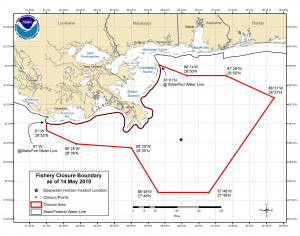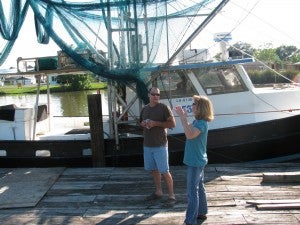| httpv://www.youtube.com/watch?v=bni8RT6HgqU |
As a massive oil spill and its underwater plumes continue to threaten fisheries in parts of the Gulf, charter captains are in an immediate pinch: their prized red snapper season is about to open on June 1 for just 53 days, but clients are foregoing fishing trips because they are worried about whether it is safe to visit the coast and fish in the Gulf during the oil spill. Offshore fishing outside the closed spill area remains good, and fishing captains are ready to accommodate customers.
But, Captain Gary Jarvis of Destin, Florida, points to an unexpected impact: “This oil spill exposes the failure of Gulf recreational fisheries management.”
With so many cancelled trips, and a short government-set red snapper season, charter fishermen are looking for ways to stay afloat. While traveling the Gulf Coast, I heard a lot of ideas for moving around or extending the 53 day red snapper season.
“We need a new way to manage our fishery that gives us the flexibility to deal with these kinds of disasters and run stable businesses,” Jarvis said.
Thankfully, they don’t have to look far for a working model.
“In addition to my charter business, I have a small commercial fishing business,” Jarvis explained. “The commercial side of my business is doing fine. For now, I’m not worried about it because the fishery is managed smartly.”
Gulf commercial red snapper fishermen currently fish under a system called “individual fishing quotas” that allows them to harvest a portion of fish throughout the year when it makes most sense for their business, instead of during a set season. In exchange for this flexibility, each fishermen is held accountable for his harvest.
“Some form of catch share suitable for the for-hire industry needs to be looked into to see if we can be managed with the flexibility needed to stay profitable and keep the public access open for recreational fisheries,” Jarvis said.
Never miss a post! Subscribe to EDFish via a email or a feed reader.











